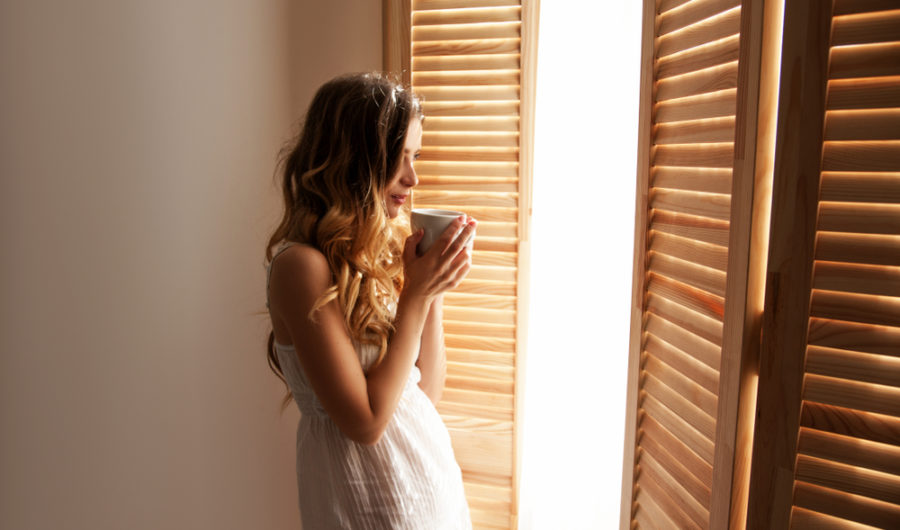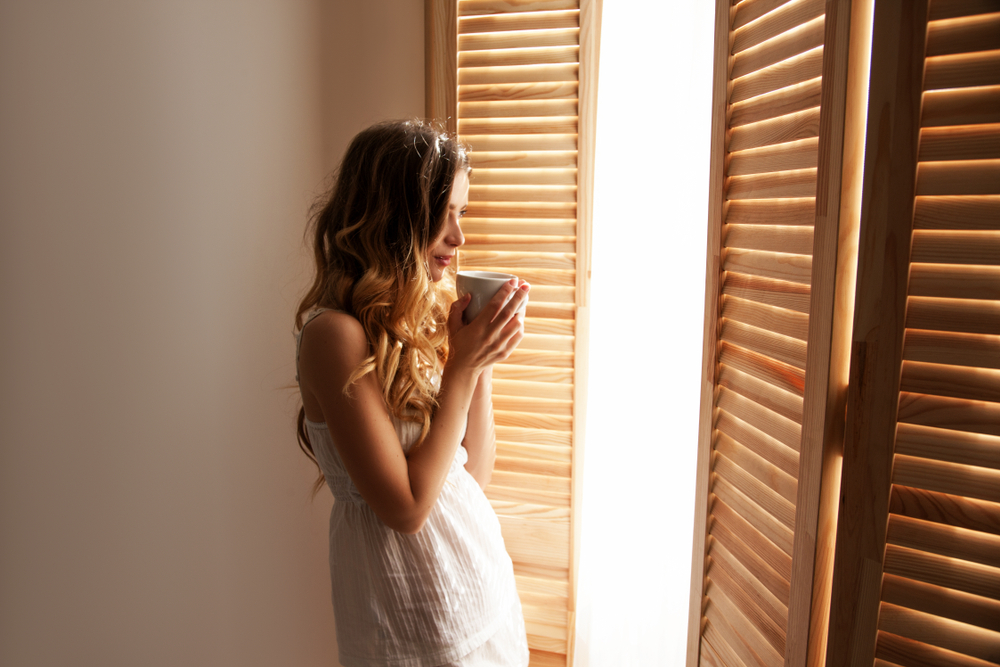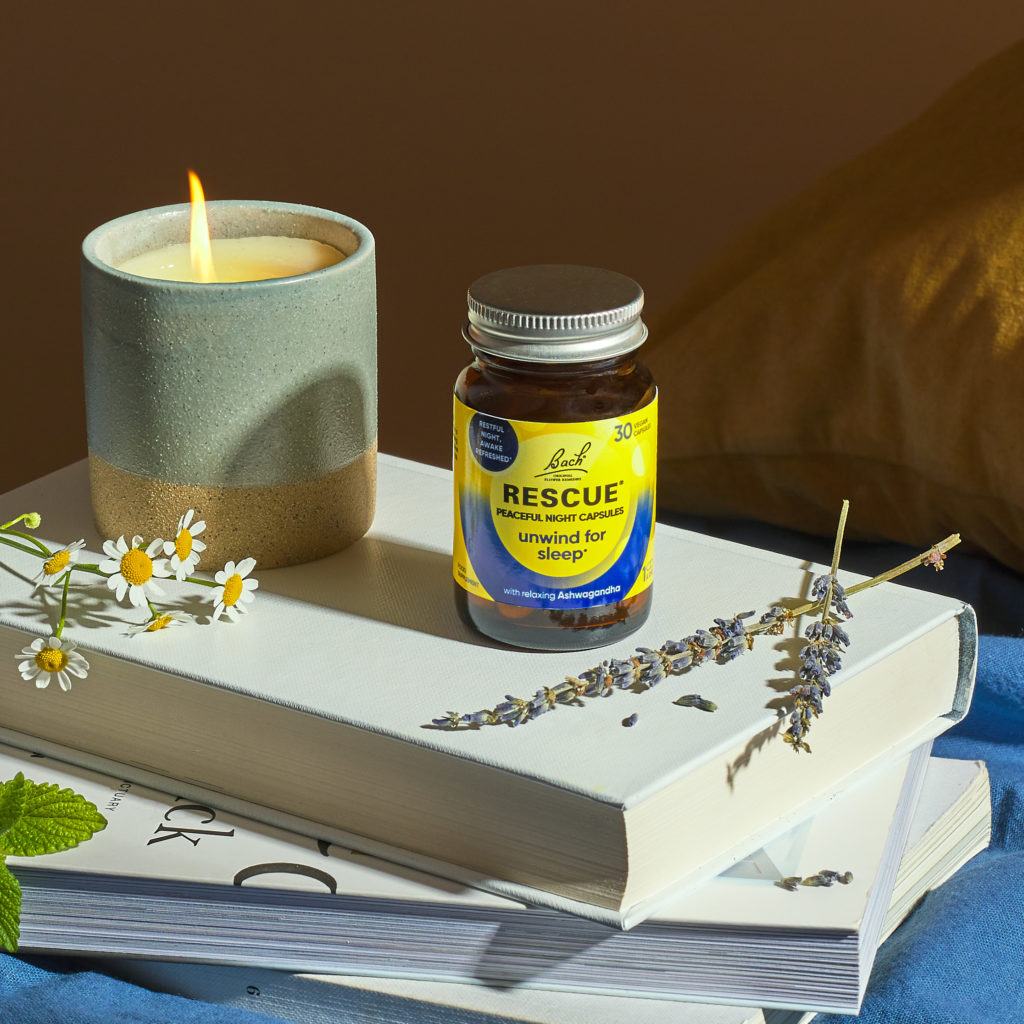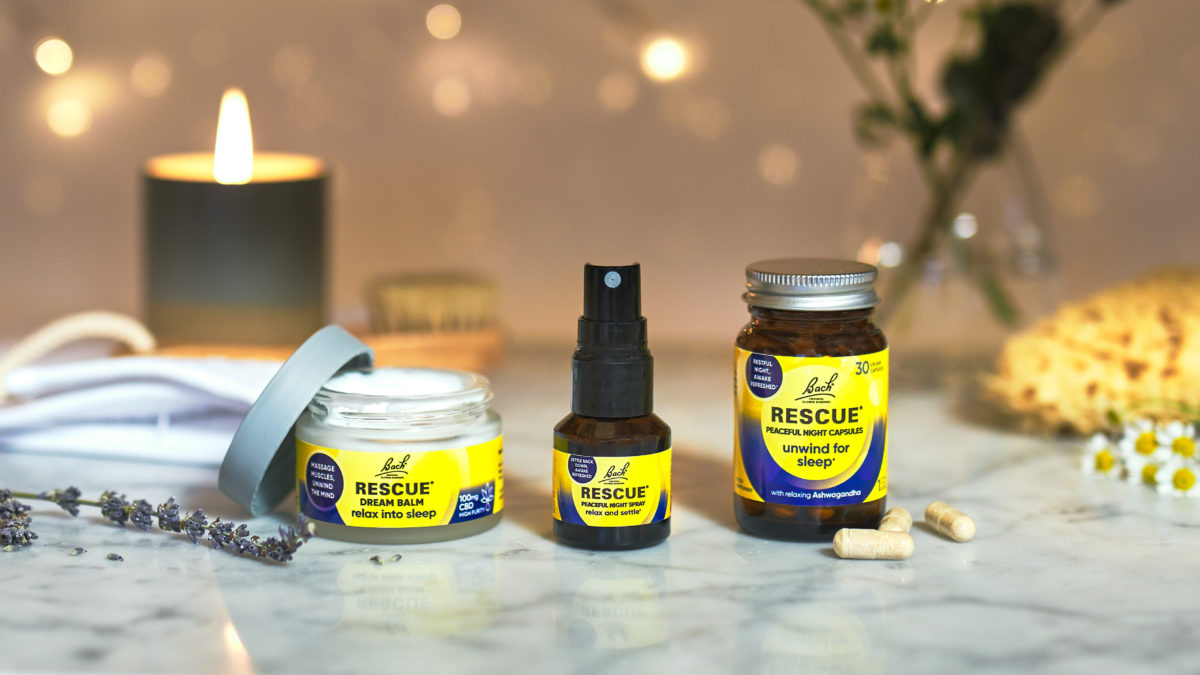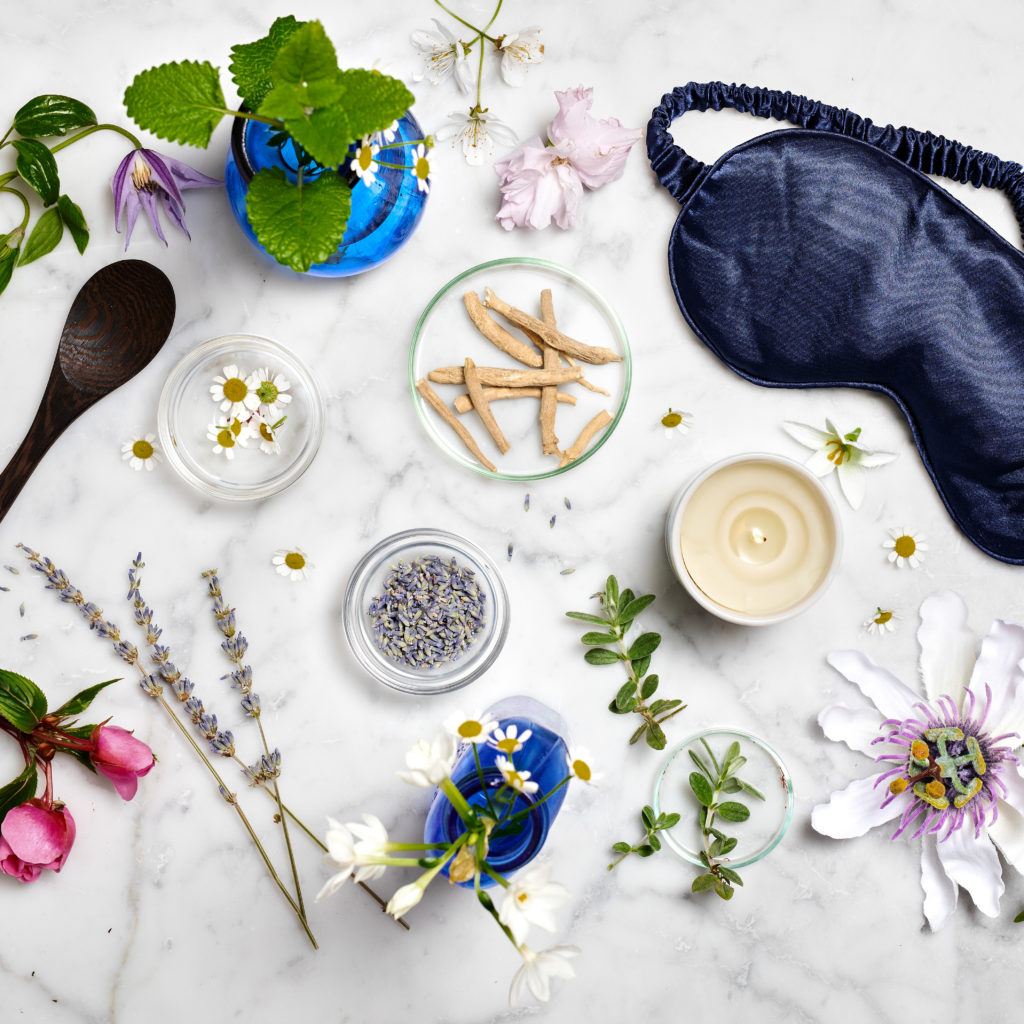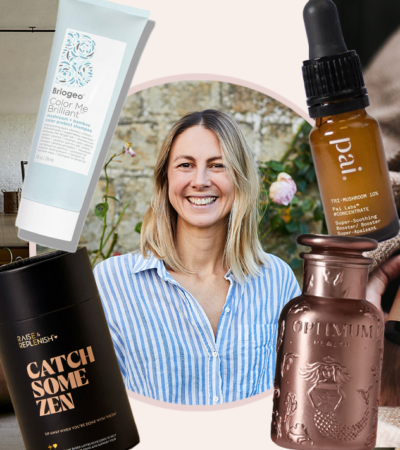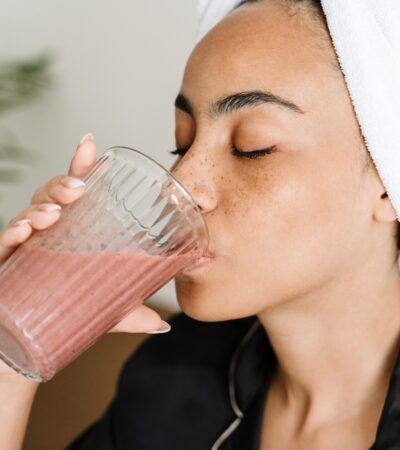Stress is a concept that most of us will be familiar with. A frequently used word in our modern world, and one which comes with negative associations. One of the worst things about stress is that it can make us feel powerless, whether it be having a never-ending to-do list or trying to find that all-important work-life balance. And with the last couple of years dominated by a pandemic, it’s not surprising that, according to the King’s College survey of 2,254 UK residents, half the population say their sleep has been more disturbed than usual as a result of the COVID-19 crisis.
On top of this, we now face being consistently over-stimulated with technology and media offering these continuous rewards, which leads to the hyperarousal of the brain. On top of this, research shows that 70-90% of doctors visits are due to stress-related issues. With facts like this arising, it looks like taking up self-care regimes to manage stress and anxiety have never been so important.
RESCUE® the UK’s number one emotional wellbeing brand know that quality sleep after a demanding day can be difficult if you aren’t relaxed and ready for bed. In turn, if you haven’t had a good night’s sleep and are feeling tired, the next day can seem extra daunting, with day-to-day challenges often feeling overwhelming. But it doesn’t have to be that way!
Their sleep range contains capsules, an oral spray and even a soothing dream balm to aid relaxation and encourage quality soothing sleep, so you awake refreshed. Vegan-friendly formulas make up their famous RESCUE® flower essences, (trusted for over 80 years), with active fusions of natural botanical ingredients including Saffron, Ashwagandha (a powerful adaptogen for sleep), Passion Flower, Ginkgo Biloba, and high purity CBD. The perfect addition to any wellness routine!
This month they have partnered with Dr Tosin Sotubo, founder of Mind Body Doctor and diversity advocate, to help us understand how stress affects sleep and give us some insider tips on how to manage stress and fix your sleep schedule this autumn.
How exactly does stress affect sleep?
When you experience periods of stress your autonomic nervous system goes into a stress response, or what is also known as the flight or fight response. This triggers the release of hormones, such as adrenaline and cortisol. These hormones prepare the body for action by creating a burst of energy and causing the body to go into an alert phase. This alert phase causes a raised heart rate, blood to circulate more to vital organs and muscles and a number of other changes in the body.
‘It’s very normal to feel stressed now and then but constant stress over a long period can lead to the body being in a prolonged state of alertness and this can impact the quality of sleep and your mood and in turn lead to further stress, causing a vicious cycle,’ says Dr Tosin.
She adds: ‘Vigorous exercise before bed, using devices, stimulation such as caffeine and alcohol, and other pernicious habits disturb the sleep cycle. When a person’s biological cycle isn’t on a schedule, it causes a wide range of minor health issues that can affect everyday life’.
What is a sleep cycle and why it’s important?
Getting enough sleep and good quality sleep is essential for daily life. Not only is sleep important for day to day living but the quality and duration of sleep can have a major impact on our health too.
Everyone has a circadian rhythm (or an internal body clock) that helps control your daily sleep and wake pattern. Your circadian rhythm is controlled by a small but highly important part of the brain called the hypothalamus. This rhythm is largely guided by genes and other natural factors such as hormones but can also be affected by a number of external elements, the biggest one being light and darkness. Your body naturally responds to darkness by producing melatonin, a hormone that helps induce sleep and then it suppresses melatonin when it’s light, to stay awake. Your body then uses this to predict your future sleep-wake cycles to prepare for when you need to sleep and stay awake.
How can you wake up feeling refreshed and break the vicious sleep-stress cycle?
Dr Tosin comments: ‘First and foremost, set aside enough time for sleep. It may seem obvious but something so simple such as being intentional about the amount of time you sleep for can make the world of difference.
It’s important to make sure you are getting at least 7-8 hrs of sleep every night and try to be consistent with the times you go to sleep and wake up. Also, work with your body’s natural clock (circadian rhythm). Make your bedroom as dark as possible when you’re ready to sleep and allow as much natural light as possible when it’s time to wake up. If you struggle to wake up on a dark morning, it’s because your body is craving some form of light to suppress melatonin and reset your body’s clock. Ideally natural light is best, but this is not always possible, and a lightbox can often help as a suitable alternative’.
How to reset your sleep schedule
Dr Tosin suggests a few tips to improve sleep hygiene and awake feeling refreshed. Try to set a routine of going to bed and waking up at the same time each day.
● When it’s time to sleep the darker the room the better. Our body responds to darkness by producing melatonin, a hormone that helps induce sleep.
● Less simulation. Caffeine and alcohol are two big culprits. People assume alcohol helps them sleep but actually it causes high levels of sleep disruption. You may fall asleep easier, but the quality will be poorer.
● The best temperature for falling asleep is somewhere between 18C and 24C. Keeping a cool temperature helps your body regulate its own body temperature.
● Relaxation. Winding down is so important when getting ready to sleep. For me this is usually doing a few stretches, reading a book or writing a to-do list for the next day to clear my mind. Also, I love massaging the RESCUE® Dream Balm into my tension points just before going to bed to help me unwind my muscles and relax my senses. Find what works for you.
● Regular exercise: Moderate exercise in the morning or early afternoon can help you wind down and fall asleep more easily at night.
● Optimal bedroom atmosphere. The bed is for sleeping – Avoid bringing work, phones and meals into the bedroom! Phones emit a blue light that can heavily disrupt sleep. For the best sleep results, keep these devices out of your bedroom at all times. In September this year, RESCUE® has revealed an exciting new sleep collection. Featuring a unique fusion of RESCUE® essences with natural ingredients including CBD, Ashwagandha, Passion Flower and Chamomile, it is aimed at consumers who are looking for natural support in preparation for sleep. The new range contains capsules, an oral spray and a soothing dream balm to aid relaxation and encourage quality restful sleep, so you awake refreshed.
RESCUE® is available from Boots, Holland & Barrett, Superdrug, independent pharmacies and health food stores, grocery stores nationwide and online at www.amazon.co.uk

